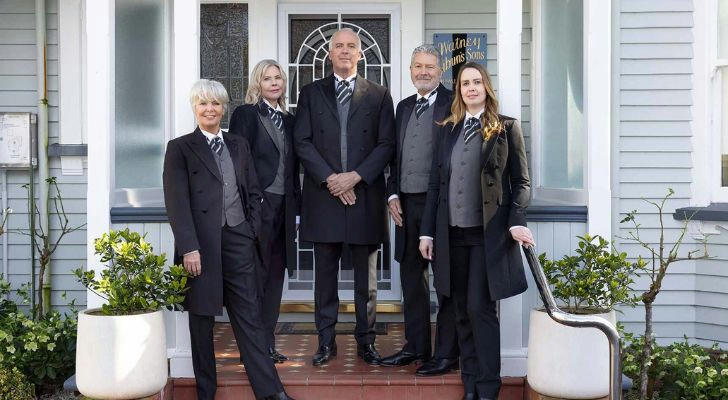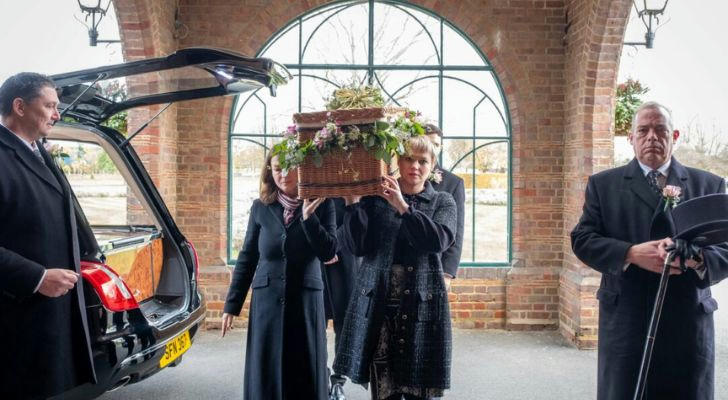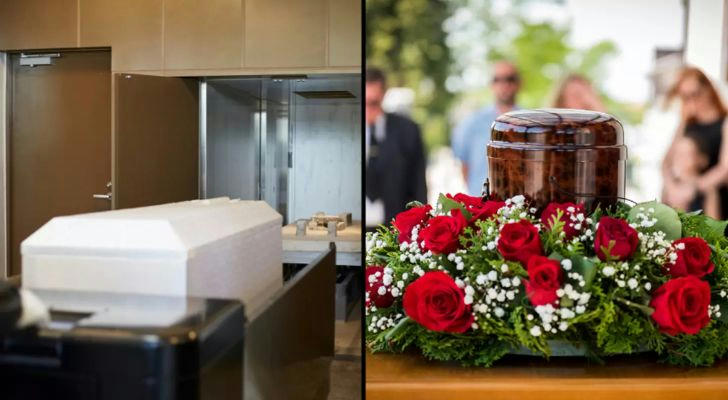The Life of a Funeral Director: A Job of Deep Responsibility and Compassion
The role of a funeral director, often overlooked and shrouded in somber tones, is one that requires both emotional strength and a deep sense of responsibility. This career, though not for everyone, plays a vital part in a society that must face death as part of the natural cycle. Funeral directors are the unsung heroes who provide comfort and support to grieving families while managing all the intricate details of funeral arrangements. But beneath this responsibility lies a complex set of challenges and rewards that many may not fully understand.

1. A Unique Emotional Balance
One of the biggest challenges a funeral director faces is the emotional weight of the job. Each day brings them into close contact with grief, loss, and sometimes shock. In fact, a survey by the National Funeral Directors Association (NFDA) revealed that 70% of funeral directors report high levels of stress due to the emotional demands of the role. This makes the ability to maintain a professional demeanor crucial.
While dealing with loss is a part of life, funeral directors must offer solace to grieving families while managing their own emotional responses. They need to balance compassion with professionalism, ensuring that their actions provide comfort without becoming overwhelmed by the grief around them. It’s a constant tightrope walk between emotional involvement and maintaining the composure necessary for the job.
2. Dealing with Death and Rituals
Funeral directors are responsible for handling a wide range of duties when someone passes away. From arranging transport for the deceased to organizing memorial services, the logistics are vast and often involve multiple steps. In fact, the funeral process involves more than 25 separate decisions, according to a report by the NFDA. These include choosing burial methods, coordinating with cemeteries, preparing obituary notices, and helping families choose a final resting place.

This often includes navigating cultural and religious customs, which can vary greatly depending on the background of the deceased. Funeral directors must be well-versed in different traditions, as some families expect specific rites and rituals to be followed. According to the NFDA, more than 80% of funeral directors report that understanding cultural traditions is key to meeting their clients’ needs, making cultural competency an essential part of the role.
3. The Hours and Workload
Unlike typical 9-to-5 jobs, the funeral director’s schedule can be unpredictable, often requiring them to work long, irregular hours. It’s not uncommon for funeral directors to be called to duty in the middle of the night or on weekends, especially when there are urgent needs following a death. The emotional and physical exhaustion from dealing with families in grief, while constantly being on-call, can be draining.
A report by the Bureau of Labor Statistics indicates that funeral directors often work over 40 hours a week, with many reporting the need to work on holidays as well. The irregularity of this schedule can sometimes lead to burnout, which makes self-care an important consideration for anyone in this profession.
4. Skills and Qualifications
To become a funeral director, a specific set of skills is necessary. Most funeral directors must complete a program in mortuary science, which includes both classroom learning and hands-on training. In the U.S., an accredited program typically takes 2-4 years to complete. Afterward, an internship or apprenticeship in a funeral home is required before taking a licensing exam. The NFDA reports that funeral homes often prefer candidates with strong communication, organizational, and interpersonal skills.
However, the technical skills required are only one side of the equation. Funeral directors must also have the ability to empathize with grieving families. This requires not only a genuine understanding of what people are going through but also a calm demeanor and clear communication to help families make difficult decisions during a time of intense emotion.
5. The Financial Aspects of Funeral Services
Running a funeral home involves more than just providing a service. It’s a business, and like any business, it requires attention to financial management. The costs associated with a funeral can range widely, depending on factors such as the type of service, location, and whether a burial or cremation is chosen. A report from the National Funeral Directors Association states that the average cost of a traditional funeral service in the U.S. is over $7,000, though it can increase significantly depending on specific choices made.
Funeral homes must ensure they are balancing the need to provide compassionate services while also staying afloat financially. This delicate balance can often lead to difficult decisions regarding pricing, service offerings, and inventory management. Many funeral directors note that the pressure to offer quality service while managing a financially viable business can be a constant challenge.
6. A Rewarding yet Demanding Profession
Despite the emotional, physical, and financial challenges that come with the role, many funeral directors find the work to be deeply rewarding. For those who are driven by a desire to help others, the sense of fulfillment that comes from guiding families through one of life’s most difficult experiences can be immense.

Moreover, the funeral industry has been evolving in recent years to meet the changing needs and expectations of families. With more people opting for cremation over burial and greater interest in personalized memorial services, funeral directors must adapt to these trends. The ability to provide a wide range of services and offer families meaningful options has made the profession even more dynamic and impactful.
7. Conclusion
The life of a funeral director is not for everyone. It requires a unique blend of emotional intelligence, logistical prowess, and business acumen. However, for those who are drawn to this career, it offers the opportunity to make a real difference in people’s lives during some of their most vulnerable moments. It’s a profession that requires strength, compassion, and dedication, and while it’s not without its challenges, the rewards of helping others through their grief make it a deeply fulfilling and necessary role in society.
